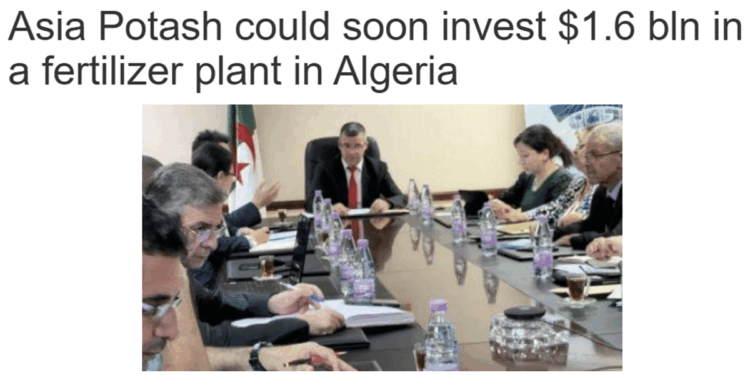According to a post published on his Facebook page by Houssem Saad, member of the Alert association, The Chinese group Asia Potash International Investment finally chose Algeria to develop an integrated industrial complex in the amount of 1.6 billion dollarsintended to exploit phosphates and produce ammonia, urea and compound fertilizers.
The project will mainly be based on natural gas for its industrial operations and is part of the Algerian economic diversification strategy beyond hydrocarbons, exploiting the large local reserves estimated at more than 4 billion tonnes.
According to Houssem Saad, Tunisia was approached in April 2025 during an exploratory visit to the Chinese delegation. Tunisian official and media communication had then presented this visit as a future investment of around $ 800 million in Sraouartan phosphate. Saad had then put this announcement into a radio intervention: “It’s not the time to celebrate, it’s a work moment. Expressing an interest is not an investment. »»
Three months later, in July 2025, the Chinese delegation returned to Tunisia and found that few concrete measures had been taken to advance the project. According to Houssem Saad, several factors explain why Tunisia has been exceeded:
- Administrative slowness and absence of concrete actions to materialize the initial interest.
- Triumphant communication and premature media coverage, which presented symbolic success without tangible results.
- International competition and speed in the foreign direct investment sector, where pragmatism takes precedence over announcements.
- Importance of concrete and field work, because slogans and symbolic declarations are not enough to secure a major industrial project.
These observations led the Chinese delegation to finalize its choice in Algeria, where the project is advancing rapidly with technical coordination between the group and the local authorities.
This affair illustrates a structural challenge for Tunisia: slowness and symbolic communication can cause losing strategic projects to high added value, for the benefit of better prepared and more effective countries.








